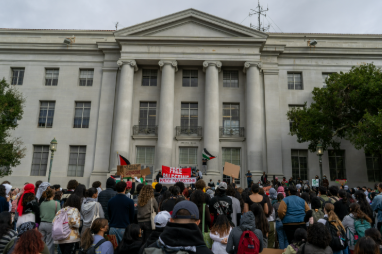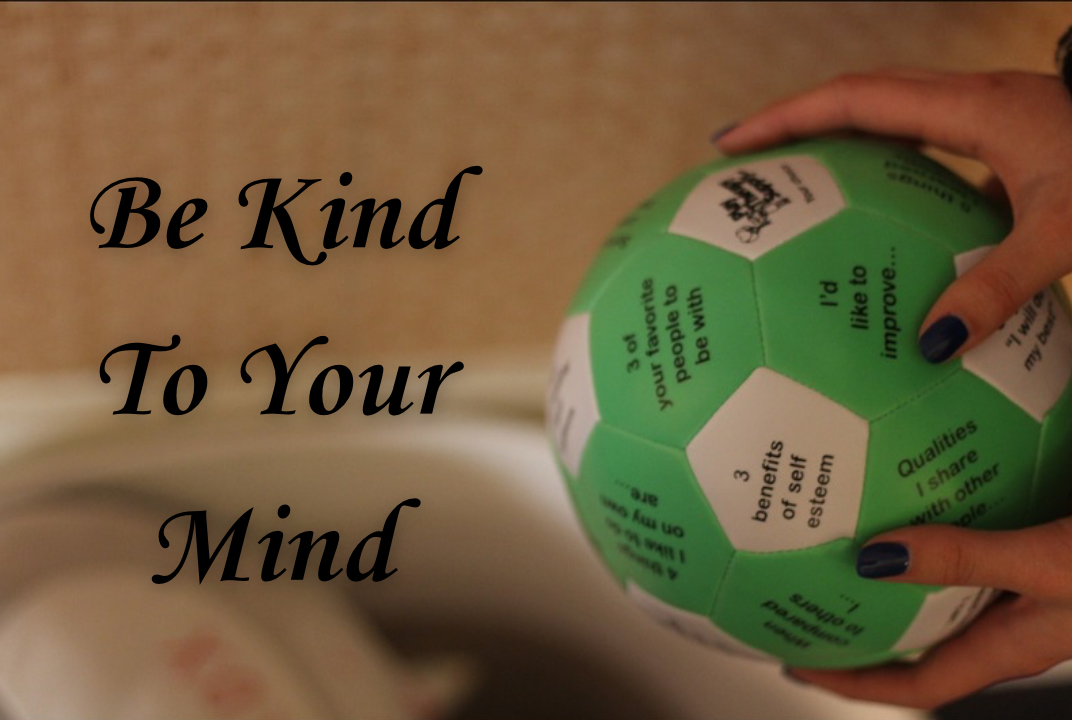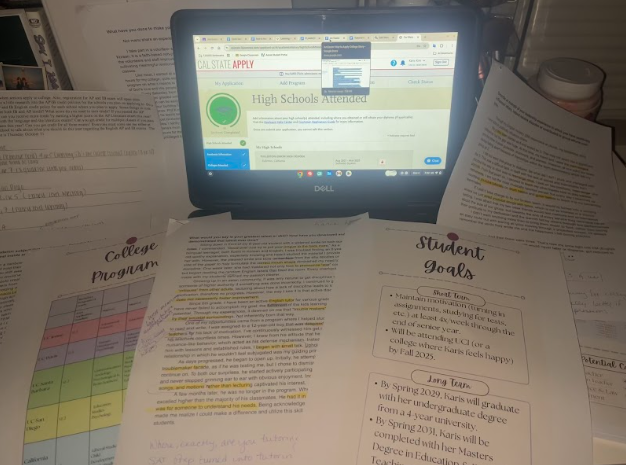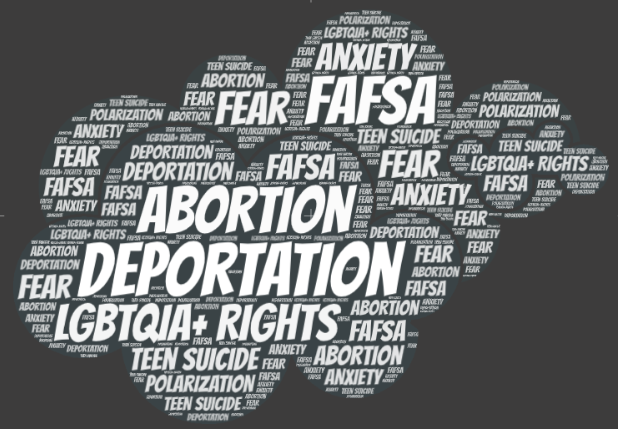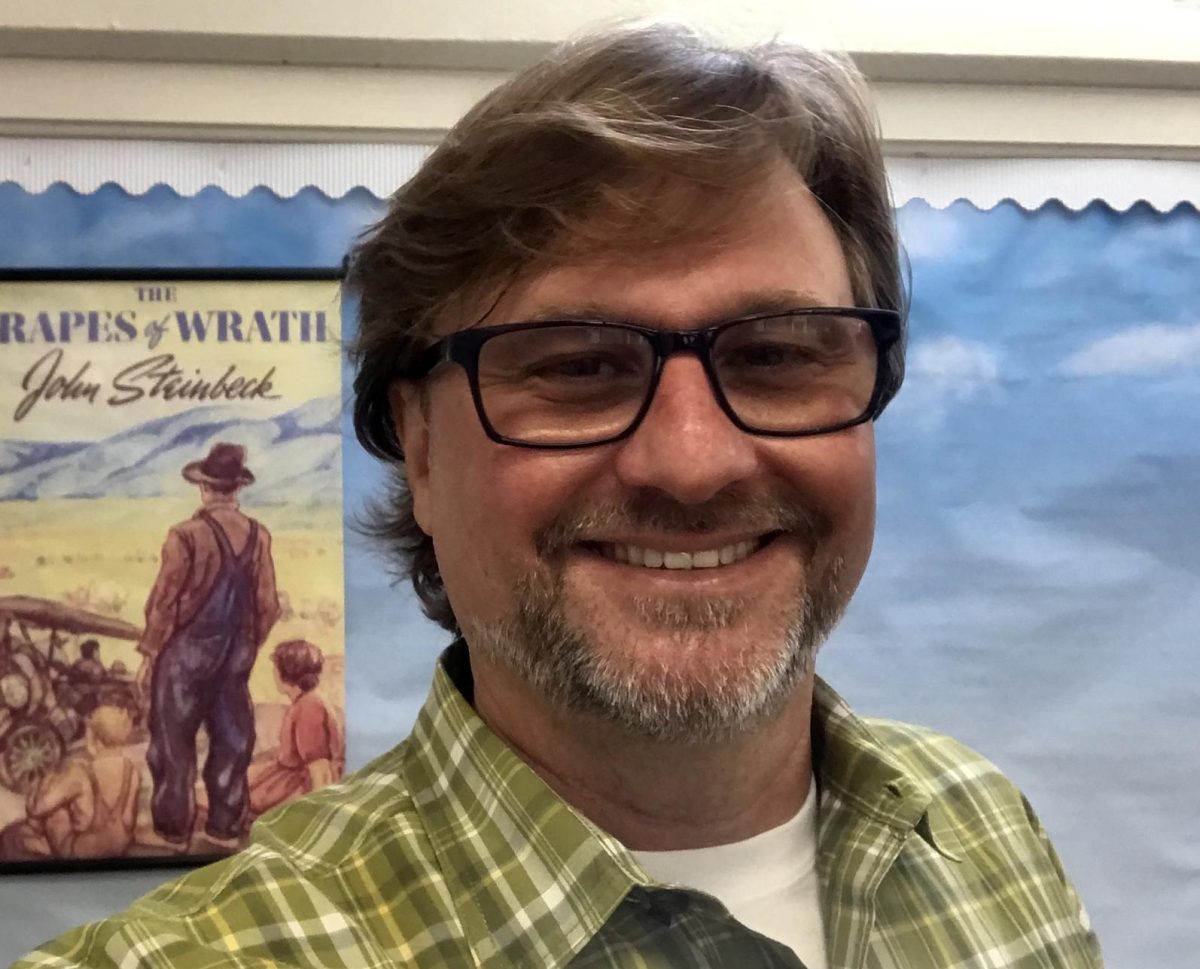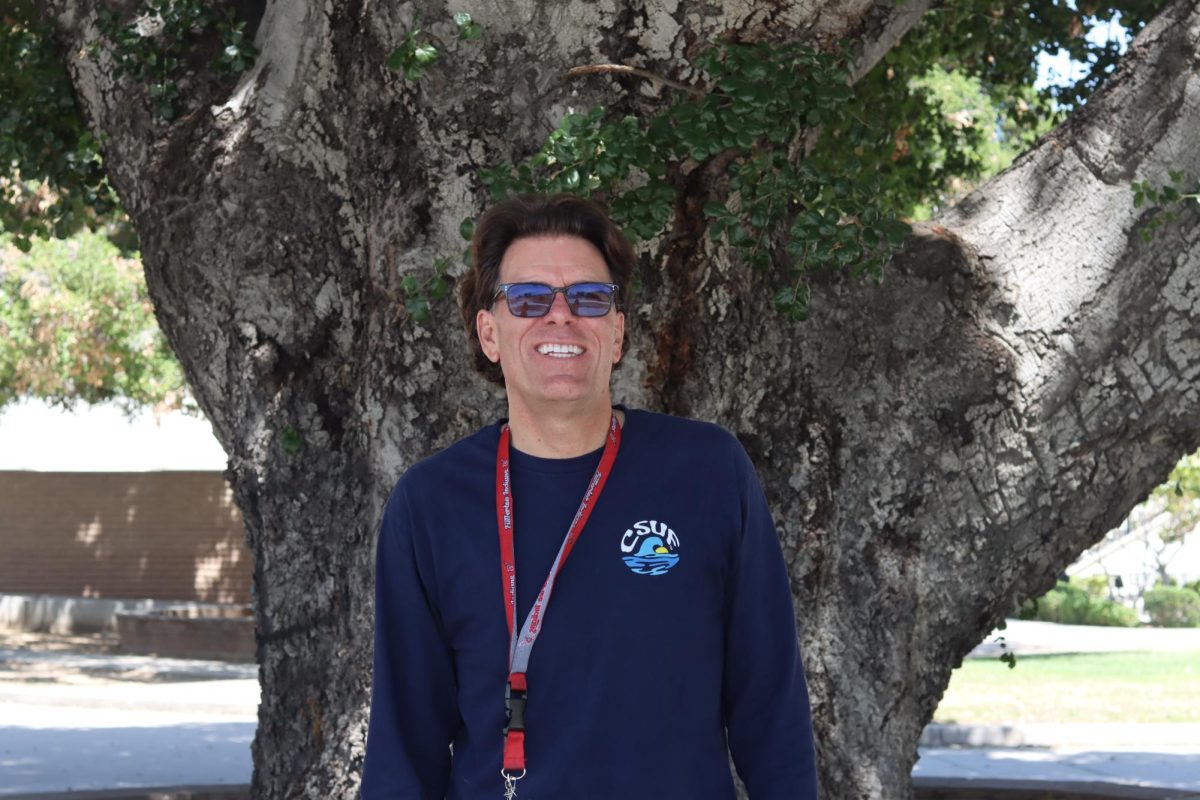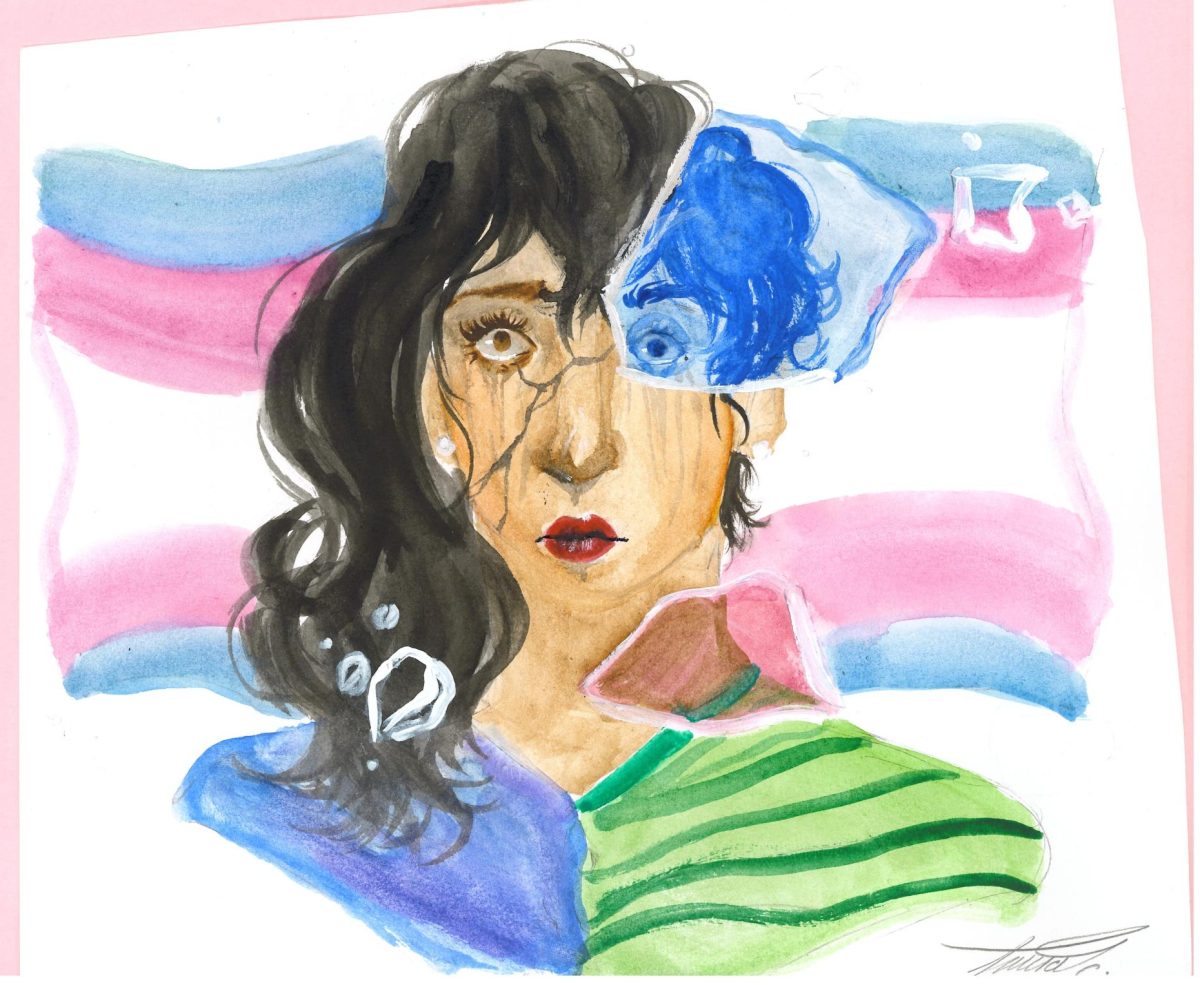Two impeachments, a Capitol Building breach, and a whole lot of inflammatory Tweets have made the last four years feel like an entire decade of division. The Tribe Tribune staff conducted interviews via Zoom with five Fullerton teachers to discuss their reactions to the events on Jan. 6 and to discuss how to overcome political divisiveness.
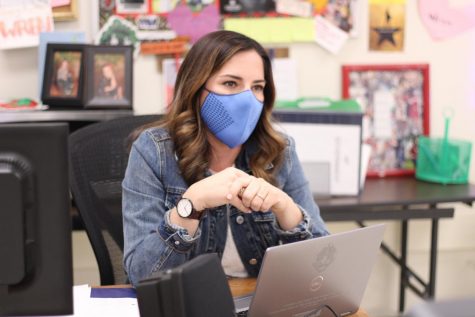
What was your reaction to the events that happened at the capitol on Jan. 6?
AP Government teacher Katy Wren: A former colleague of mine sent a text, “Hey, are you watching what’s going on?” and I’m instantly, just like in my mind, thinking, “It has to be something Trump said on Twitter or whatever else.” You know, my mind didn’t go there. It was more just, “Oh, it was probably something that he was saying on social media.” And then that’s when I got the second text that they stormed the capitol, and I’m like, “Who’s they? What’s going on?” So I turned on the TV, and again it didn’t seem real. It seemed like something from a movie or something that’s happening in an unstable country somewhere else. I just sat on my couch with my mouth open and then I called my dad, which I think is so telling. Like as an adult with her own family, I called my dad because I was like, “That’s who I want to talk to at that moment.” And my dad didn’t know yet. He’s 82 so he’s not like checking the news quite like we all are. So we sat there and talked about it and I just remember him saying, “This is a coup. This is what a coup looks like.” I was like, “Oh my god, yeah, this is what an attempted coup looks like.”
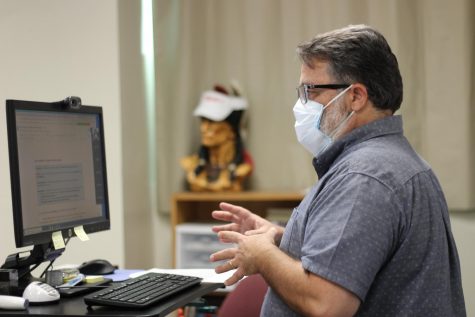
AP English teacher Leo Indelicato: I was right here sitting at [my desk] and I was teaching class remotely. I had the TV on, muted. And as I’m teaching class, I’m looking at the TV and I’m watching all these people storm the capitol building. I think I even said to my class, are any of you watching the television right now? And I had a couple kids say that they were, and I’m like, I can’t believe what I’m seeing, because earlier in the morning, I think zero or first period I had said, “They’re people protesting; they have the right to protest.” Boy, when they started breaking into the capitol building I went, well, it’s not peaceful anymore. It’s a mob. And what do I do? I’m a teacher, I’m teaching a class of students and history is being made right before me, you know? So I decided to continue working and teaching class and play it cool and wait for that class to end. Then I turned the volume on and I listened to what was going on and I was just dumbfounded.
What can we learn from the events that happened on Jan. 6?
IB History teacher Mark Henderson: I think there is a lot you can learn from this. In future years I think we are going to be teaching a lot about the last four years and about Jan. 6. There is an enormous lesson in the importance of listening to each other. There is an important lesson in how we got here. Jan. 6 didn’t just happen. So you have to as a historian ask, “How did we get to this point where Americans are storming the capitol, breaking doors and windows and threatening lives?” We need to learn from this event because it’s so important. The whole story about history is we need to learn from it so we don’t do it again. It can never happen again and it did and it breaks my heart.
Wren: I hope it has a lasting impact. We have this belief in the United States that “That would never happen here, we would never let that happen,” you know, “We promote democracy, our country would never do that.” I think when you watch that you go, “Okay, this absolutely can happen here.” I hope that’s the other thing that we can take away from this. That as we continue to vote. That we don’t whole-heartedly accept and blindly follow one person and say, “No matter what they say or do, I’m gonna support them.” Presidents are human beings, they’re people, they’re imperfect, they’re public servants. It’s our right to talk about what they’re doing and to say I disagree with it.
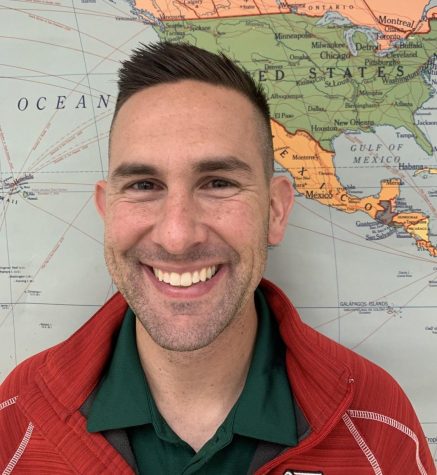
As a history teacher what do we need to learn from the last four years?
AP United States History teacher David Shanebeck: Our nation politically and structurally had always been built on compromise. While compromise is hard and requires sacrifice, if we want to live in a diverse society with different viewpoints and different people then we have to find a middle ground wherever that is. It may not always be dead center, it might be drifting one way or the other. I think last summer we saw the tensions that were rising out of the Black Lives Matter movement. Republicans and conservatives needed to find a middle ground that was maybe further than they wanted it to be. I also believe that there were aggressive actions by people on the left. I experienced bullying on social media to post certain things. [The message was] if you don’t post certain things then you are not with us so you must be against us. I think the message I pulled from these last four years is that we must come together and recognize that we are all human beings. Democrat or Republican, at the end of the day we are human beings. We are flawed, we have failings, and we have to have grace for one another.
AP European History teacher Mike Muhovich: For me, as a citizen, a teacher, and a historian, the last four years were difficult. I think, like a reporter, a historian wants to tell the truth. And there are times when we’ve moved away from having rational debate, compromise, and it’s hurt the country moving forward. In a simple way, that’s been very frustrating. From a political point of view you want solutions but we’re spiraling to the point where we don’t get solutions to a lot of problems that we have. No matter what you think of this country, either a great country or a country that’s still unfinished, there’s a bunch of stuff that needs to be done. Whether it’s infrastructure, COVID, I think that’s been a frustrating thing for me. You can’t have rational conversations because our country is so politically divided.
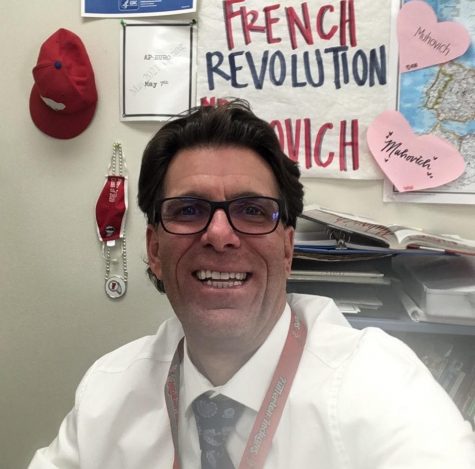
How do you feel about concerns over disinformation and so-called “fake news”?
Muhovich: When you’re in AP Euro or my U.S. History class you’re a historian for the period. You’re looking at things from a historian’s eyes. And that’s something that I think we’ve totally lost. A different perspective is now a wrong perspective, instead of just being a different perspective. All the times we look at things in history class you might have a student say “that’s weird” but 200 years ago it was just different, it wasn’t weird to them. I think we’ve gotten away from that. Like, the argument on my side is the truth and your side isn’t true. And the whole idea of the media being a negative word. The media throughout most of our country was seen as the fourth branch of government because it kept the other three branches accountable. We’ve gotten away from that and it’s super frustrating.
How can we combat the problem of fake and unreliable news?
Shanebeck: Social media is a danger. I think that if you are getting your information from social media then you are doing it wrong. I don’t care who you follow, I don’t care what it is. It’s just dangerous to rely on social media to provide accurate information. People on Twitter, all it takes is just one person spitting something out, five other people spit it out too and now all of a sudden you got a rolling stone that you can’t stop that may not actually be true at all. [Someone claiming that Trump] getting impeached by the House means he will lose his pension and is not constitutional, that’s not a thing. Do two minutes of research and you’ll find it, not even two minutes you could Google that for 30 seconds it will pop up. If you hear something crazy or if you hear something that is like “huh, that’s weird, I don’t know if that’s true” that’s a warning bell that you need to go look into it and you need to go read about and find out if it’s true. In this day and age of social media and rapid information dissemination you can’t just accept what you hear. You have to process it, you have to look and research. Sometimes that means reading opposing views and opposing arguments.
Indelicato: I think what’s happened is social media has given everyone a platform to speak. There’s no filter, there’s no sense of modesty, there’s no embarrassment, there’s no sense of shame. And people post things, whether it’s anonymous or not anonymous and they just don’t care. Social media has just given megaphones to everyone.
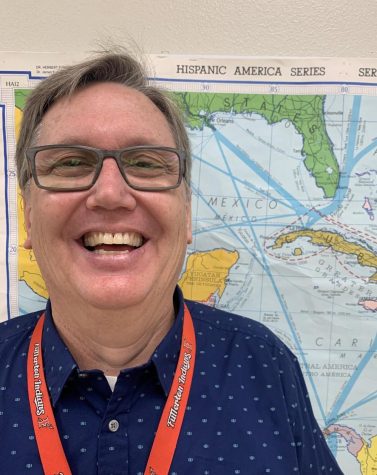
Have American politics become too polarized?
Henderson: Now this is not universal for everybody but it’s become very polarized where the one side won’t even listen to the facts or opinions or the beliefs of the other side. Our perspective has gotten so narrow that we don’t even listen to the other side and our news outlets have done that too. Where now the news outlets are way on one side and way on the other. That had been growing over the years.
How do you suggest we “fix” political divisiveness?
Muhovich: This has been the issue of the last 10, 20, 30 years. We’ve always been political. We’ve always had parties. But we’ve really become divided. How do you have leaders on both sides? I’ve partially given up on my generation. It’s going to fall on your generation. I think I’ve said this in my class, but we’re on the cusp of a new, younger generation taking power. The baby boomers are aging out. They may have one more big say in things but what do the younger generations want to see the United States look like? You guys are more open, more tolerant. You want to see action. I think you guys will be just as political, but right now you guys are more open. I’m hoping it’s time for a new voice. Both parties have to figure out how to get the “middle guys” to come to their side. I don’t have all the answers but that’s what has to be done. How do you reach out and bring in other segments of the country or your community? And how do you rationally sit down and have a conversation? How do you sit down and say “I disagree with you” but still sit down and come to a solution?
Wren: I think our politicians, both Democrats and Republicans alike, have to stop countering with “Well you did this, so now I’m gonna do this.” That mentality needs to stop if we’re going to come together as a nation. I think it’s possible, but I also think it needs to come from leadership; I think it’ll be really hard for people to unite when our leaders and our country are not united, you know what I mean? As long as our nation remains divided at the leadership level, we’re not going to unite as Americans, it has to come from the top down. So, I think if we can get members of both parties to work alongside one another, I think that’s the only way we can do it. You can’t expect the country to come together when the government itself is divided.
What is your hope now after inauguration?
Henderson: The ultimate hope is that we can all get along. The ultimate hope is that we can bring back our roots of democracy and realize democracy is compromise, listening to the other side, still having your beliefs and strong beliefs. You don’t eradicate that but the hope is that we are able to stop the name calling, nothing good comes out of the name calling and listen to each other and hopefully forge a path together. It would be wonderful if we could stop thinking of ourselves as Democrats and Republicans and start thinking about ourselves as Americans.

